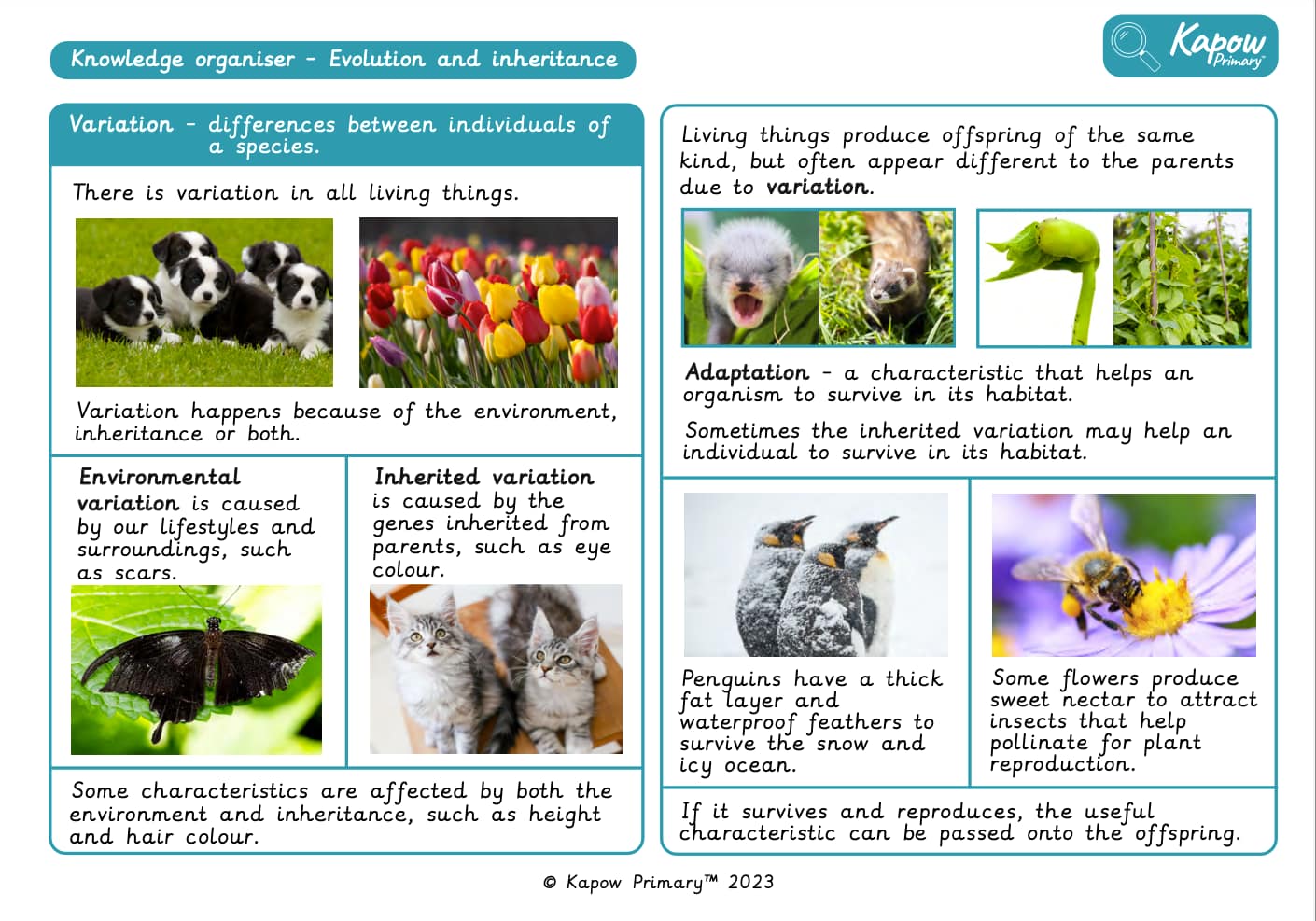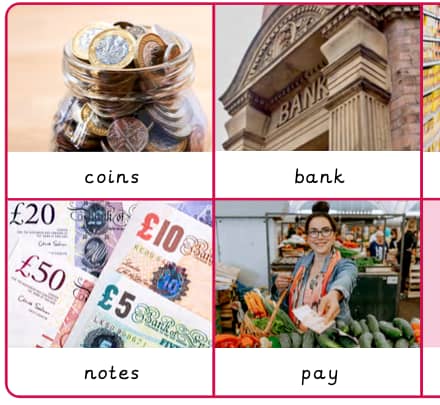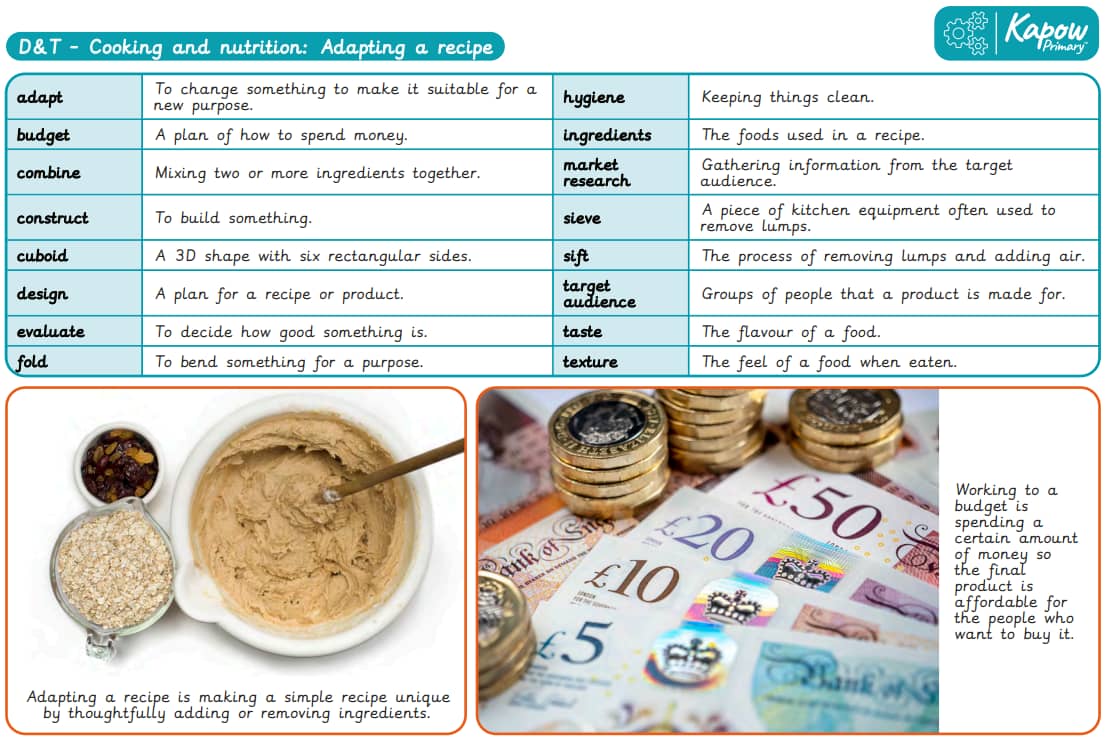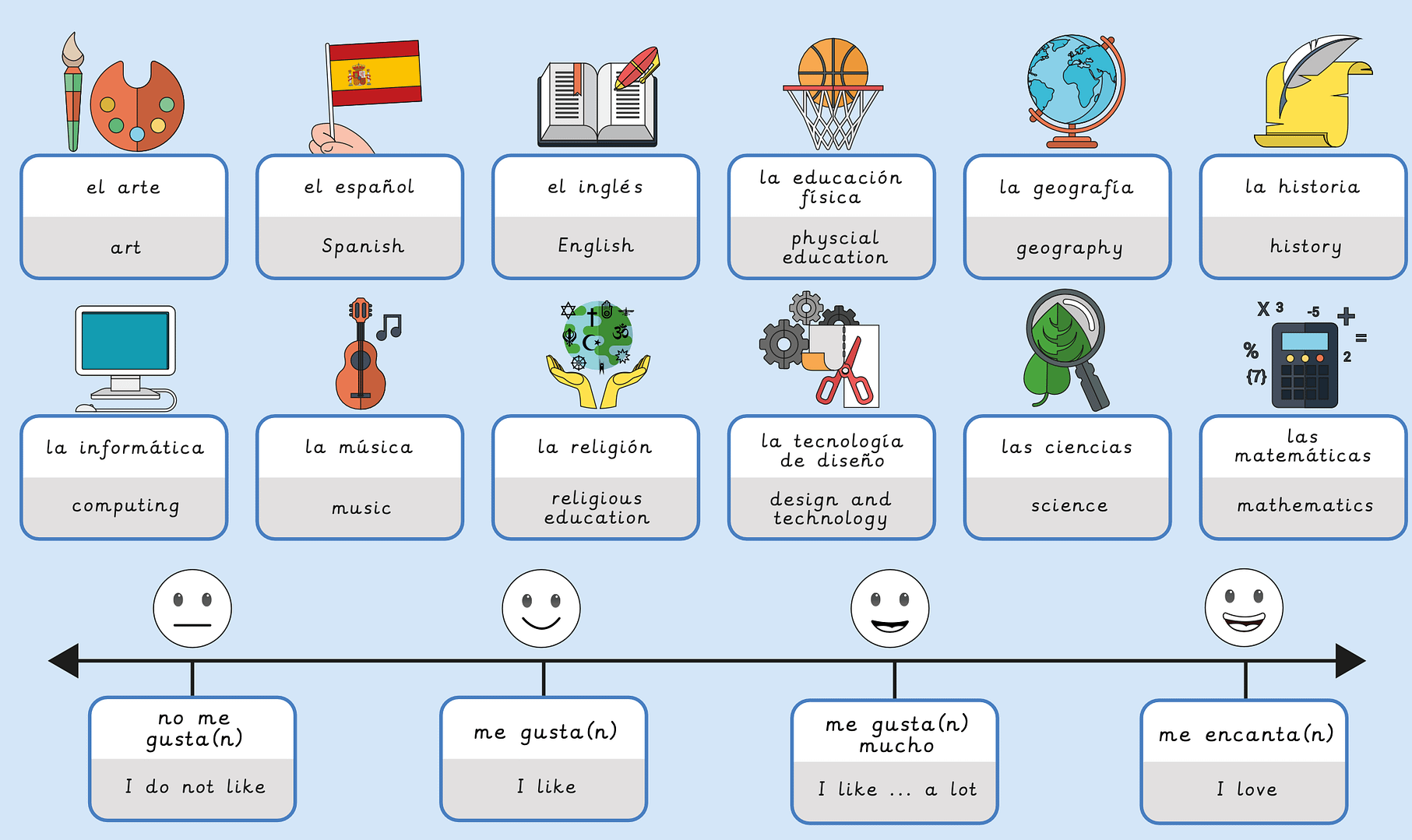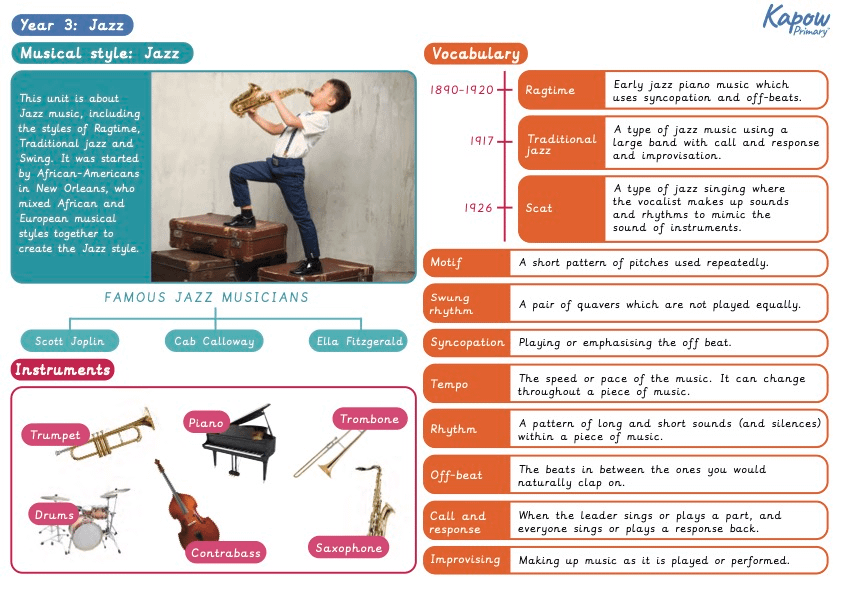
A Knowledge organiser that captures the essential knowledge and skills learnt throughout the unit Music, Year 3, Jazz.
This Music resource is designed to support the pupils as they explore the key characteristics of jazz music and its historical significance. It introduces key vocabulary such as syncopation, improvisation, swing, blues scale, and call and response, helping the pupils understand how jazz musicians create expressive and dynamic performances. The pupils will also learn about the influence of jazz pioneers and experiment with improvisation techniques.
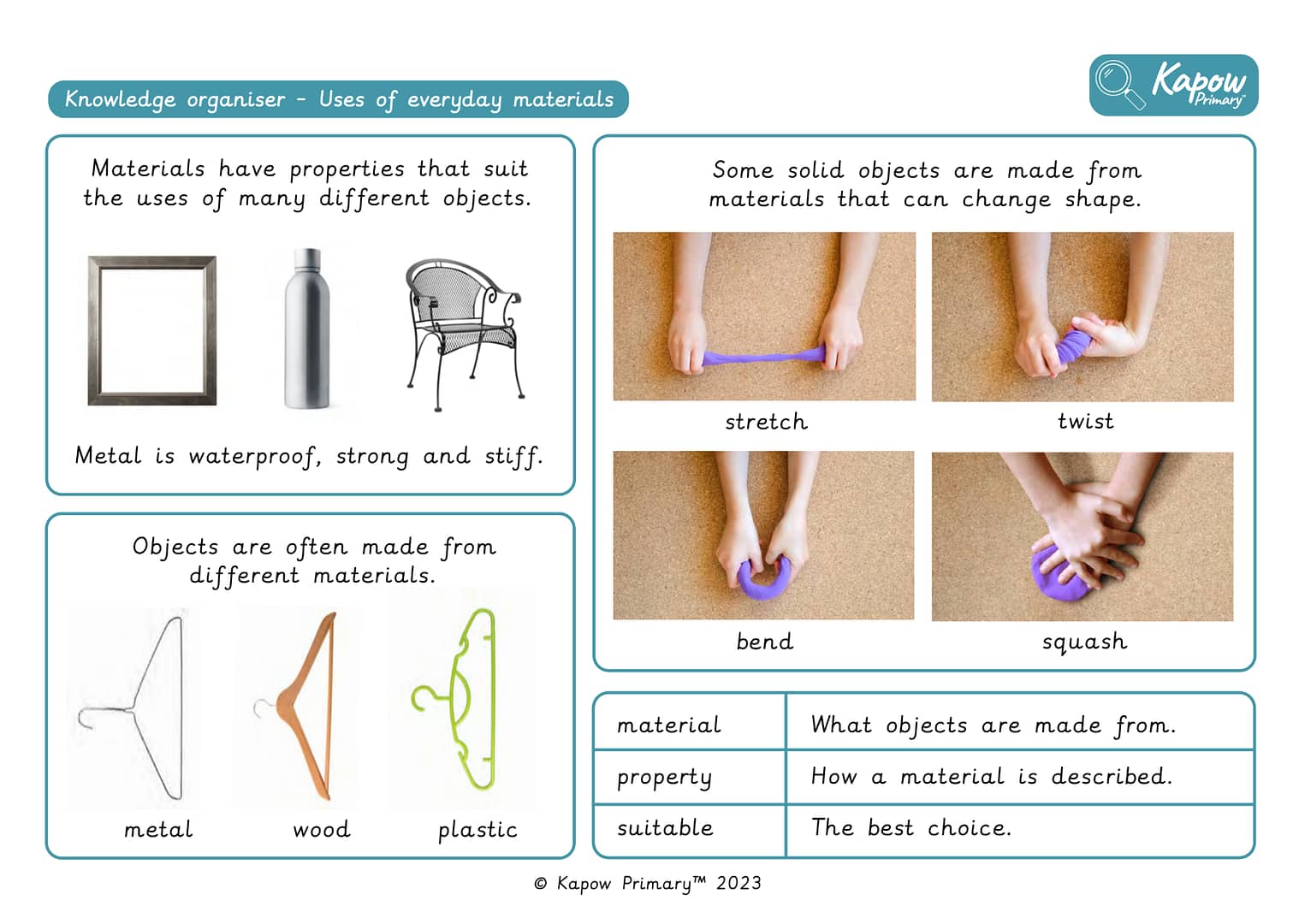
A Knowledge organiser that captures the essential knowledge and skills learnt throughout the unit Science, Year 2, Materials: Uses of everyday materials.
This resource is designed to support the children as they explore the uses of everyday materials. It highlights key vocabulary and examines how different materials, such as metal, wood and plastic, are chosen for specific purposes. The resource also explores how some materials can change shape through stretching, twisting, bending or squashing. It is perfect for consolidating essential knowledge and fostering an understanding of how materials are used in the world around us.
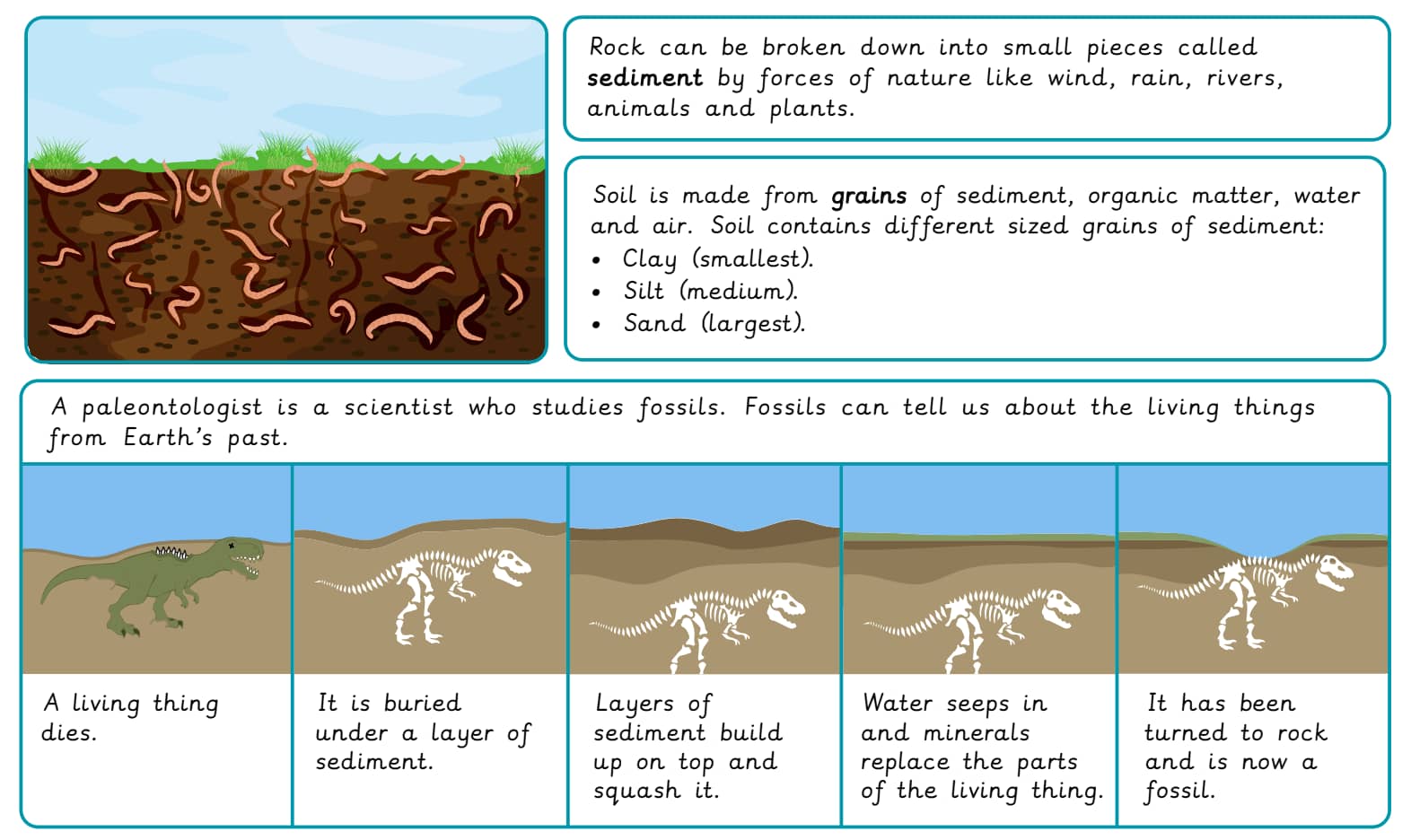
A Knowledge organiser that captures the essential knowledge and skills learnt throughout the unit Science, Year 3, Materials: Rocks and soil.
This resource is designed to support the children as they explore rocks and soil. It highlights key vocabulary and concepts, including different types of rocks, their formation and their physical properties. The resource explains how soil is made from sediment, organic matter, water and air, and introduces drainage rates and sedimentation. It also explores how fossils are formed and studied by palaeontologists. It is perfect for consolidating essential knowledge and fostering an understanding of the natural processes that shape the Earth’s surface.
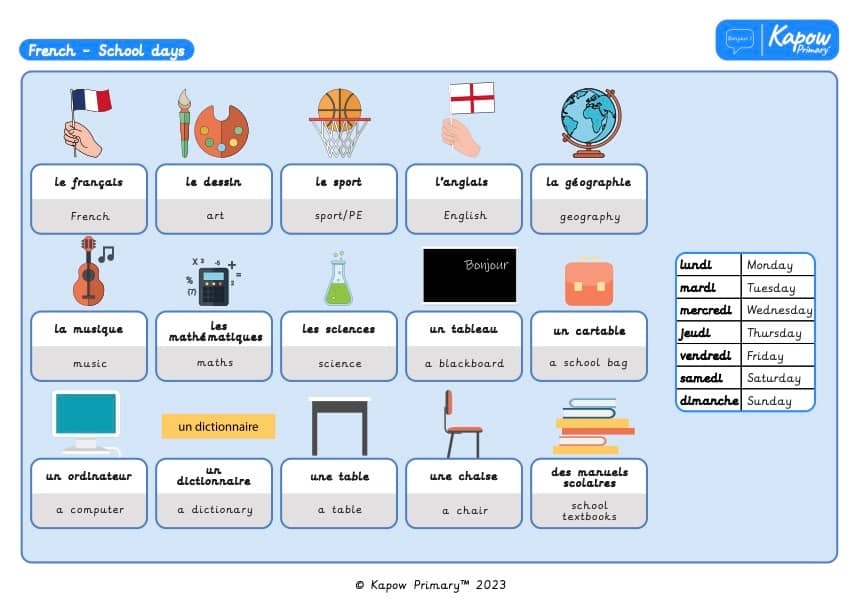
A Knowledge Organiser that captures the essential knowledge and skills learnt throughout the mixed-age unit French, Year 3/4 (B), Unit 2: School days.
This resource is designed to support pupils as they develop vocabulary and conversational skills related to school subjects, classroom objects, and days of the week in French. Pupils learn key nouns such as le sport (PE), la musique (music), un cartable (school bag), and un ordinateur (computer), supported by colourful visual aids. The organiser also introduces sentence structures used to describe classroom environments and routines (e.g. Dans ma salle de classe, il y a une chaise et une table – “In my classroom, there is a chair and a table”), as well as how to express what subjects are studied on which days. A helpful grammar guide explains how to use definite (le, la, l’, les) and indefinite (un, une, des) articles based on noun gender and number. This resource is ideal for building pupils’ confidence in using simple French to describe their everyday school life.
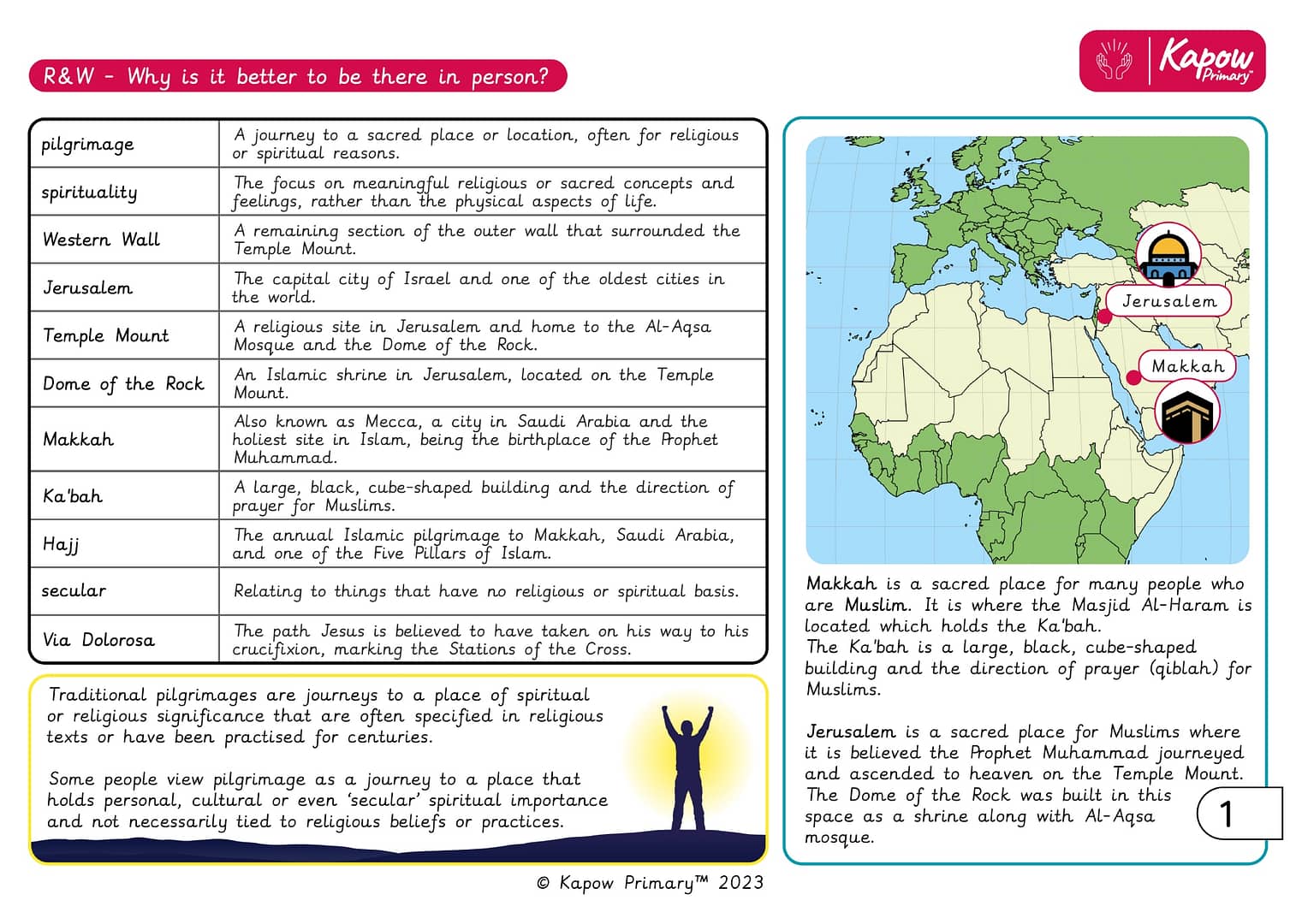
A Knowledge organiser that captures the essential knowledge and skills learnt throughout the unit Religion and Worldviews, Year 6, Why Is It Better to Be There in Person?
This Religion and Worldviews resource is designed to support the pupils as they explore the significance of physical presence in religious and cultural experiences. It introduces key vocabulary such as pilgrimage, worship, sacred, ritual, and community, helping the pupils understand why attending religious ceremonies, festivals, and places of worship can be meaningful. The pupils will also learn about different religious practices and the role of shared experiences in faith and spirituality.





